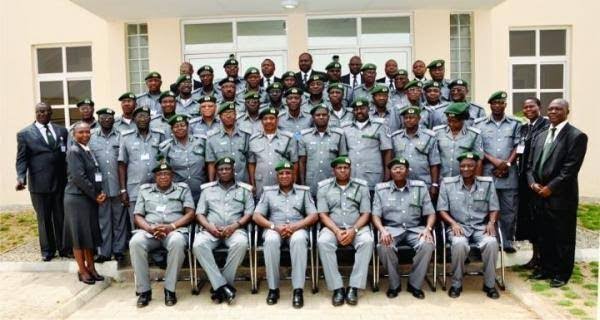Ranks of BSC Holders in Nigeria Customs
Joining the Nigeria Customs Service (NCS) as a Bachelor of Science (BSC) holder presents a path towards a fulfilling career in public service.
Understanding the available ranks and progression system is crucial for making informed decisions about your career trajectory within the NCS.
This article delves into the specific ranks BSC holders can attain and how their progression through the hierarchy occurs.
Entry Point and Initial Rank:
BSC holders entering the NCS typically commence their service at the rank of Deputy Superintendent of Customs (DSC).
This entry point reflects the higher level of academic qualification compared to other entry levels within the Service.
Rank Structure and Progression:
The NCS operates a hierarchical rank structure mirroring that of the Nigeria Police Force. Within this system, BSC holders can progress through the following ranks:
-
Deputy Superintendent of Customs (DSC): Upon joining, BSC holders begin at this rank, assuming various roles related to customs administration, trade facilitation, and border security.
-
Assistant Superintendent of Customs (ASC): Promotion to this rank typically occurs after satisfactory performance and completion of relevant training programs. ASC officers hold increased responsibility and may lead small teams within customs formations.
-
Chief Superintendent of Customs (CSC): Further promotions lead to the CSC rank, where officers assume supervisory roles and leadership positions within larger units or departments.
-
Deputy Comptroller of Customs (DC): Experienced CSC officers with exemplary records may be promoted to this senior rank, managing significant operations and resources within the NCS.
-
Comptroller of Customs (CC): This esteemed rank represents the pinnacle of the officer career path within the NCS. CCs hold top leadership positions, overseeing regional or national customs operations and playing a vital role in policy formulation and strategic decision-making.
Factors Influencing Promotion:
Promotions within the NCS are merit-based and consider several factors, including:
-
Performance: Consistent high performance in assigned duties, meeting targets, and demonstrating initiative are crucial for advancement.
-
Seniority: Time spent in service and experience within previous ranks contribute to eligibility for promotion.
-
Training and Qualifications: Participation in further training programs and acquiring additional qualifications can enhance an officer’s prospects.
-
Integrity and Conduct: Upholding ethical conduct and maintaining a clean record are paramount for career progression within the NCS.
Benefits of Higher Ranks:
Achieving higher ranks within the NCS brings several benefits, including:
-
Increased salaries and allowances: Senior ranks come with significantly higher financial compensation and improved benefits packages.
-
Greater responsibility and leadership opportunities: Officers at higher ranks take on leading roles in complex operations and decision-making processes.
-
Enhanced career satisfaction: The responsibility and challenges associated with higher ranks can provide greater job satisfaction and personal growth.
Conclusion:
For BSC holders, a career in the NCS offers a well-defined rank structure and opportunities for advancement.
Understanding the entry point, promotion paths, and influencing factors allows informed career planning and maximizes potential for progression within the service.
This journey towards higher ranks demands dedication, consistent performance, and unwavering commitment to the values and mission of the NCS.
Frequently Asked Questions:
What is the starting rank for BSC holders in the NCS?
The starting rank for BSC holders joining the NCS is Deputy Superintendent of Customs (DSC).
Can BSC holders directly become Assistant Superintendent of Customs (ASC)?
No, BSC holders typically begin at the DSC rank and progress to ASC upon fulfilling specific performance and training requirements.
How long does it take to reach the rank of Comptroller of Customs (CC)?
Reaching the CC rank requires extensive experience, exceptional performance, and potentially several promotions over a substantial period within the NCS.
Does further education after joining the NCS influence promotion?
While not a requirement, acquiring additional qualifications through further education can positively impact an officer’s career prospects and potential for promotion within the NCS.







